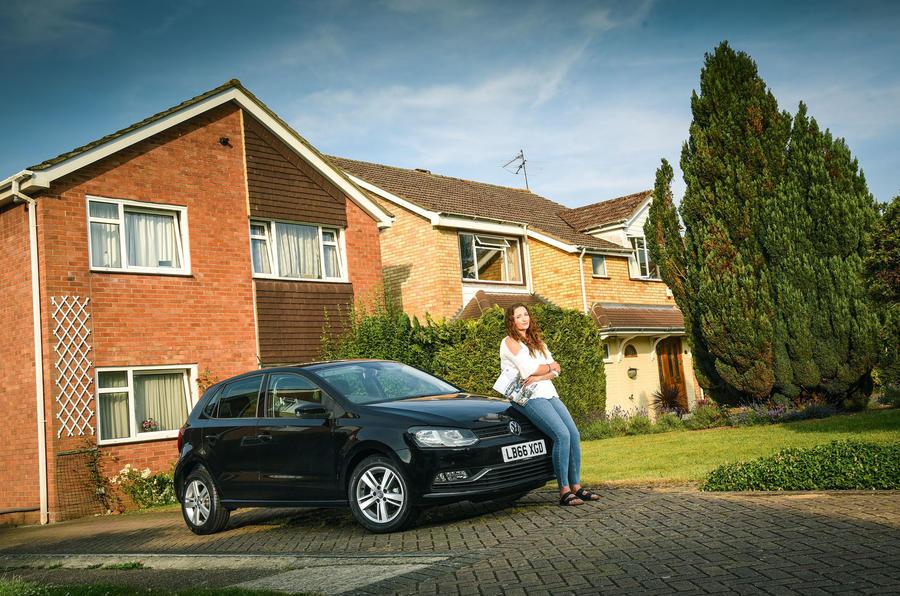What is the future of PCP finance for car buyers?
Personal Contract Purchase under the spotlight

There has been a boom in PCP finance deals for cars, and it’s starting to worry some institutions, including the Bank of England. The BoE is concerned that consumer credit is growing much faster than household incomes, and the fastest sector of that growth has been in dealership car finance. Should we, like the BoE, be worried?
Personal Contract Purchase finance means that you can get a brand new car for either no deposit or a deposit of a few thousand pounds. You then defer a lot of the value to the end of the three-year term, so you’re often only paying a couple or a few hundred pounds a month to drive around in a smart executive car or the latest SUV. Sounds attractive of course.
It’s easy to go along with this, see the small or non-existent deposit and the small repayments and think ‘I can afford that’. But of course you don’t own the car. To do that, you’ll need to pay off the balloon payment at the end of the three-year contract. And that amount is the Minimum Guaranteed Future Value (MGFV).

That often doesn’t look like an attractive option, paying a load of money for a three-year old car, but to own it you’ll need to find that capital. Or, you can just hand the keys back (assuming you’re cleared any penalties for exceeding the agreed mileage or any damage). Get that – you’ve paid money for three years and yet you’ll have nothing to show for it.
Or you roll that car over into a new deal and you start again – that’s what most people do. Lose your job, have a life event or whatever, and if you can’t keep up the payments you lose the car, probably at the time when you really need it.
But, you think, that’s okay because the companies do credit checks, so they’ll only do deals with people who can afford it right? Well, Emmalyne Holgate spent a year travelling and returned home less than a year ago. She’s 22, she had £1000 in the bank, no job and was living with her grandmother. She went to a car dealership and they ran some checks.

She drove away in a brand new VW Polo 1.2 Match Edition, value, a bit over £14,000. She had to put her entire savings, that £1000, down to secure the deal but the salesman knocked £1500 off the price. Nobody asked her about her income.
According to the Financial Ombudsman, consumers are complaining after taking out PCP deals that they didn’t understand they had to pay off that MGFV to own the car. Others weren’t happy that they were charged a lot for repairs or exceeding the agreed annual mileage. Clearly, some shouldn’t have had a deal but Claire King, who is insight manager at the Money Advice Trust, isn’t surprised.
“Credit checks use historical data and are not a reliable indicator of your ability to pay off your loan,” she says. “We’ve seen a 1.1% rise in the number of people seeking help with their PCP debts – from 10.5% last year to 11.6% in the first quarter of this year.
“Lenders should take customers through an affordability check that allows for sudden life changes.”

With a rise in not three-year but six-year PCP deals, there is obviously an increased risk of a ‘sudden life change’ happening in that longer timeframe.
The Bank of England isn’t the only organisation concerned. The Financial Conduct Authority (FCA) is conducting an exploratory piece of work on motor finance. The reason?
“We are concerned that there may be a lack of transparency, potential conflicts of interest and irresponsible lending in the motor finance industry. Following the review, we will assess whether and how to intervene in the market.”
However, Adrian Dalley, who is head of motor finance at the Finance and Leasing Association, points out this is only an exploratory piece of work and that implies a lack of real concern.
“If it were an investigation, that would be something very different and would suggest there was something wrong with the way motor finance, including PCPs, is sold,” he says. “As it is, arrears levels are at historically low levels. What’s more, with a secured loan such as HP [hire purchase] or PCP, the consumer has valuable rights, including the right to terminate the contract.”
But, for now, it’s working out for Emmalyne. She has a job, is saving money, paying her PCP deal and enjoying her nice new car. What the situation will be when that three-year PCP deal ends is something that is starting to gain increasing attention from an increasing number of organisations.
Graham Scott is a writer for AutoCar.
Join our commenting forum
Join thought-provoking conversations, follow other Independent readers and see their replies
Comments
Bookmark popover
Removed from bookmarks